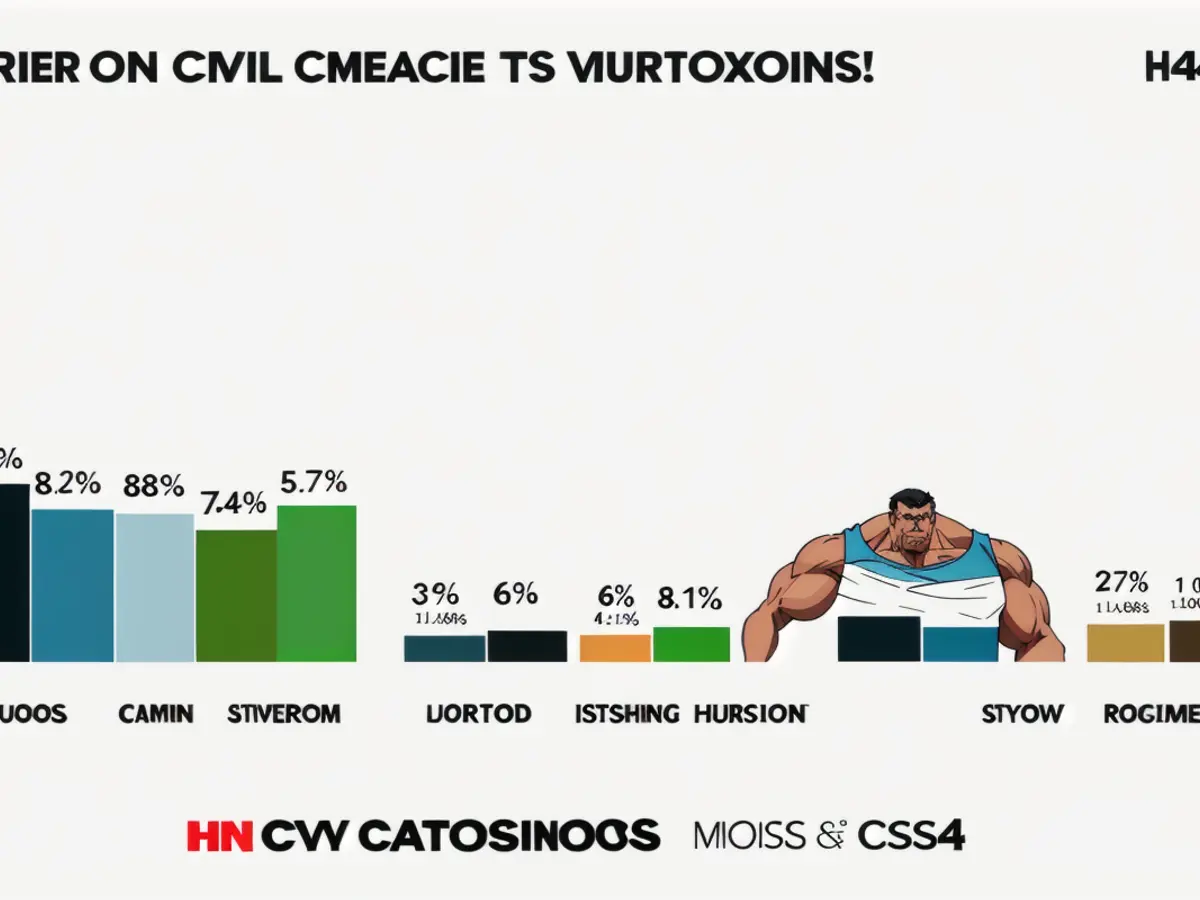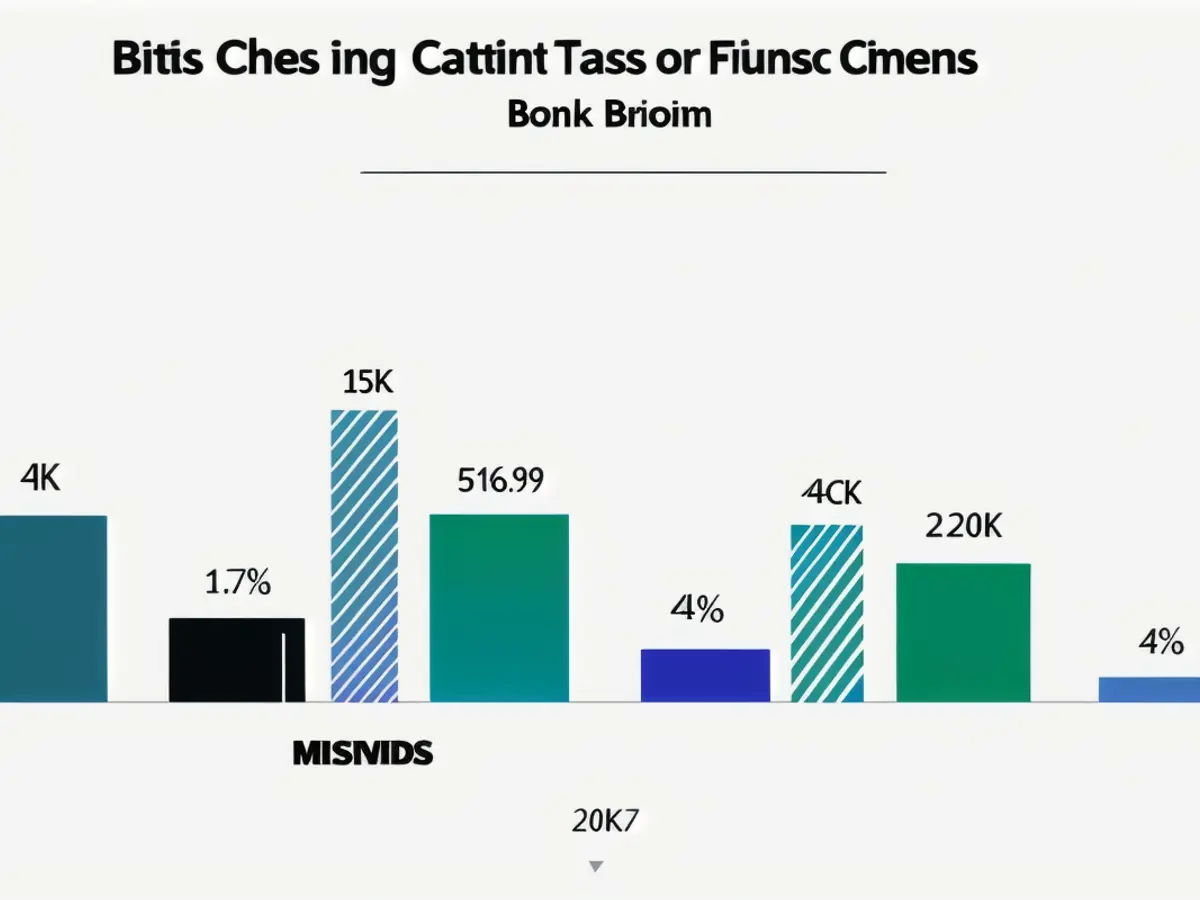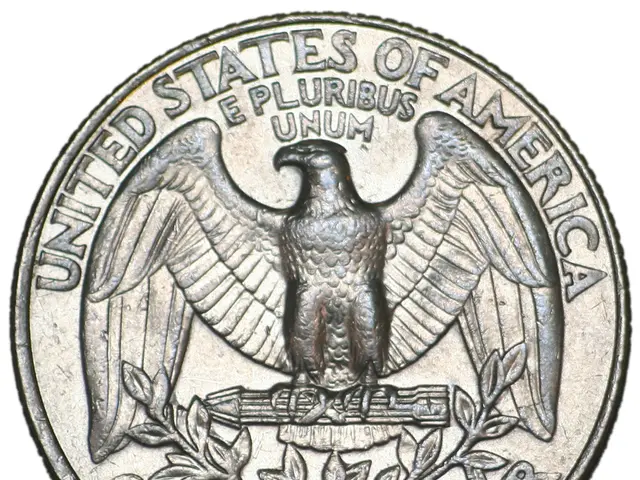SOAKING UP THE CHECKING ACCOUNT MARKET: DIGITAL BANKS AND FINTECHS STAND FIRM
title: Fintechs Outperforming Banks in Innovative Checking Accounts
A recent survey by Cornerstone Advisors reveals a striking picture of the U.S. checking account market in 2024, with digital banks and fintechs like Chime, PayPal, and Square continuing their reign.
What's brewing in the checking account scene?
Digital banks and fintechs rule: The lion's share of newly opened checking accounts belongs to the digital kingdom, with traditional megabanks (Bank of America, Chase, Citi, and Wells Fargo) and regional banks (with assets between $100 billion and $1 trillion) following closely at their heels.
Dominance with a twist: Though digital banks and fintechs still command a 44% slice of the market, their influence dipped slightly from 2023, as megabanks and regional banks made gains.
Chime and PayPal's reign: These two heavyweights account for a whopping 49% of all digital bank and fintech account openings, while taking in 21% of all checking accounts in 2024.
Winners and losers: Brands like PayPal, PNC, and Wells Fargo gained ground, while community banks and TD Bank took a step back and digital powerhouse Varo Bank witnessed a notable decline in its market share.

The number of new checking accounts opened in 2024 fell to 12% compared to 14% in 2022 and 2023, but the winning contenders continued to seize a larger piece of the dwindling pie.
Why the digital bank/fintech victory?
Digital banks and fintechs haven't topped the list merely due to a better mobile banking experience, as often claimed. In fact, it's not a leading reason people cite for choosing these platforms.
Instead, it's the allure of their product offerings that keeps attracting users. The digital accounts are reworked hybrids, incorporating features from various financial products and services – a juicy mix that continues to entice.
Fighting back the old-fashioned way
The megabanks and regional banks reclaimed ground by throwing more money into the ring to lure in new customers, flashing lucrative welcome offers and high-yield savings accounts with attractive interest rates.

Fintech's big challenge
Despite dominating the market for new account openings, fintechs face a looming issue – Gen Z, Millennials, and Gen X consumers diminishingly consider fintechs or digital banks as their primary checking account providers compared to previous years.
The Gen Z conundrum
Over half of the folks who opened accounts in 2024 are keeping more than one, tapping into incentives like free or low-priced accounts or simply hopping on board new offerings. But they aren't necessarily treating their new accounts as their primaries.
Falling from grace – Chime's case
Chime, a prominent player in the fintech world, saw its primary checking account provider share slip from 10% in 2023 to a mere 6.5% in 2024. Chime's Gen Z market share plummeted six points to 6.3%, signaling a change in the wind.

Fintech's conundrum: Gen Z rebels and limited offerings
Theories abound for Chime's stumble. Gen Z may begrudge the service as a symbol of its Millennial predecessors. Also, Chime has yet to expand its product offerings beyond the essentials, leaving an opportunity for competitors to swoop in and reclaim lost ground.
Enrichment Insights
Here are a few reasons behind the industry's shift towards digital banks and fintechs:
- Technological advancements, including digital payments and contactless solutions, have improved transactional efficiency and user experiences following the pandemic-driven reset.
- Blockchain and AI implementation enhance bank security and efficiency while reducing fraud risks.
- Regulatory frameworks, such as PSD2, bolster collaboration between banks and fintechs, spurring innovation.
- The global expansion of e-commerce and the ubiquity of digital payments are fostering demand for seamless cross-border transactions.
- Embedded finance is facilitating financial services integration with non-financial platforms, leading to essential yet invisible services in popular apps.
- The market growth and investments in fintechs, coupled with the rise of digital payments, will propel the market at an annual growth rate of 25.18% up to 2028.
These factors have collectively contributed to digital banks and fintechs' domination of the U.S. checking account market in 2024.
» Square Cash App, as a part of the fintech scene, saw an increase in usage for checking accounts, contributing to the overall dominance of digital banks and fintechs.
» Chase, a traditional megabank, is still in the running, albeit slightly behind digital banks and fintechs like Chime and PayPal, who continue to lead in the market.
» Wells Fargo, another megabank, is also present in the scene, grappling with the surge of digital bank and fintech accounts openings.
» PayPal and Chime, the market leaders, are now offering services like digital bank features, potentially encroaching on the territory of traditional banking providers like Wells Fargo and Chase.





